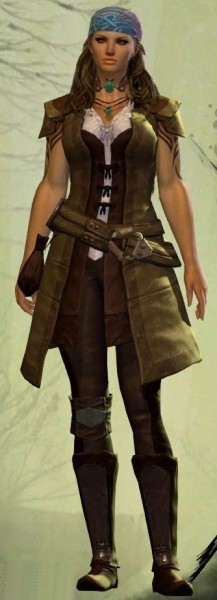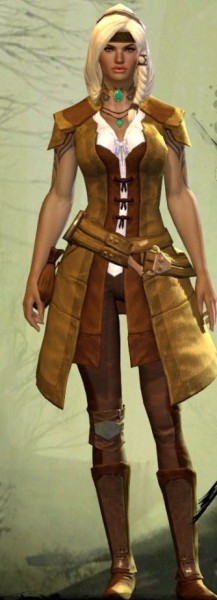I’ve been somewhat remiss in posting about the card & board game exploits of our irregular (in many senses) gaming group. Over the past couple of years we’ve tackled a fair assortment of cardboard-based diversions, many covered during Murdering of Time, or in textual form at The Azadian and Power Armoured Beard. Settlers of Catan, Carcassonne, Dominion, Thunderstone, Small World, Battlestar Galactica, Ticket to Ride, amongst others, have been big hits, and last weekend featured a couple of new additions to The Shute Library.
Gloom, as seen on Wil Wheaton’s Tabletop, is a card game in which the objective is to make your family as miserable as possible, and then kill them off. Gloomy, eh? As well as making your own family unhappy, you can play cards on other families that make them more happy, although of course that makes their player unhappy. It’s something of an emotional rollercoaster… The cards are nicely done, being transparent, so they can be stacked up to cancel out or enhance previous effects. A lot of the fun is in the storytelling that players are encouraged (though not obligated) to do to explain precisely how the family member in question became Popular in Parliament, or was Devoured by Weasels. In our game there was a particularly action-packed park where, amongst other improbable happenings, a teddy bear (with a human brain) Found Love by the Lake (in the form of a swan, apparently), while a hapless explorer was Drowned by Ducks after being Pursued by Poodles. We had six players, using additional families from a couple of expansion packs (but not the extra rules, while we got used to things), and the only slight problem was that the game dragged a little. We used all five family members for each player, and cutting that down to four as the rules suggested for a four player game, or even three, would’ve probably been ideal; as it was it took too long to kill off an entire family, especially with action cards preventing several untimely demises.
Lords of Waterdeep is a Dungeons & Dragons boardgame without many dungeons, or indeed dragons. It’s about gaining power and influence in the city, mostly by collecting resources, then spending those resources to complete ‘quests’. To stick to the D&D theme the resources you collect are Fighters, Rogues, Mages and Clerics, but with a bit of a tweak to the fluff text they could just as well be Brick, Wood, Sheep and Wheat. You might pick up a few references to Elminster or Zhentil Keep or something if you’re into the Forgotten Realms, but there’s no need to have any D&D knowledge at all. Like many games it seemed confusing and overcomplicated when pressing out hundreds of cardboard tokens and first reading the rules, but it only took a couple of turns to get the hang of things, and it rattled along very nicely after that.
On a bit of a stroll around the forums of boardgamegeek.com, I think I stumbled across the boardgame equivalent of the MMOG “theme park” vs “sandbox” debate: “German-style” vs “American-style” games. In neither argument do the terms have a concrete definition, more a series of characteristics; in neither argument is there a “right” answer, just personal preference, with many people perfectly happy to play games of, or with characteristics of, either or both types. Naturally, then, there’s no shortage of flamewars burrowing into deep semantic rabbit warrens as participants attempt to convince each other that their subjective personal opinion is The Truth. As The Economist put it, “arguing over what the difference is seems to be gamers’ second-favourite pastime.” Today’s xkcd is strangely aposite, fractal nesting of subcultures indeed.
It turns out I’m generally on the Eurogame side of the fence, particularly the element: “There is very little randomness or luck. Randomness that is there is mitigated by having the player decide what to do after a random event happens rather than before. Dice are rare, but not unheard of.” It’s something of a surprise; dice, for me, are inextricably linked to games, from early family games (Ludo, Monopoly etc.) through the polyhedral splendour of RPGs, but sure enough there’s a remarkable paucity of dice in the games I’ve enjoyed; Small World and Battlestar Galactica feature a little bit of rolling, Settles of Catan uses 2d6 per turn, but as a randomising element rather than resolving actions. On the other hand Blood Bowl decides almost everything with dice, and I didn’t get on with that at all, though I still haven’t tried it against a human opponent. Blood Bowl: Team Manager, though, a card game, was excellent. We tried Last Night on Earth once as well, a zombie boardgame. It didn’t help that, thanks to certain cards being played, two of us human players missed our first two turns, a pointlessly frustrating start that might’ve coloured my view of the rest of the game, but then there was all the rolling; roll a dice to see how far you move, roll dice to determine the outcome of fights, roll dice to see if more zombies turn up, yada yada. Not my cup of tea at all.
It’s not that I’ve suddenly become dice-phobic; Zombie Dice are great fun, and there’s something oddly satisfying about throwing a massive handful of dice to resolve a ludicrous short-range broadside in Uncharted Seas. I can certainly understand the arguments in their favour, the dramatic tension that dice rolls can bring, but for whatever reason I’ve enjoyed the diceless games more. It might retrospectively explain why I was more into the theory and fluff of RPGs and wargames than actually playing.
There’ll never be an end to the debate, though. Even Albert Einstein and Stephen Hawking are in on it, both trying to co-opt God to their side of the argument. Einstein’s famous “God does not play dice” suggests He is more of a Eurogamer, whereas Hawking counters with “Not only does God definitely play dice, but He sometimes confuses us by throwing them where they can’t be seen.” So I’m definitely not inviting Him round for a game of Blood Bowl.

